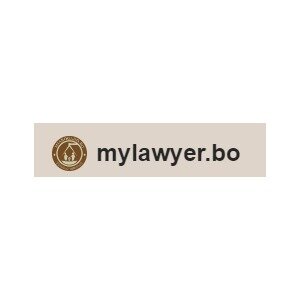Best Education Law Lawyers in Sucre
Share your needs with us, get contacted by law firms.
Free. Takes 2 min.
List of the best lawyers in Sucre, Bolivia
About Education Law in Sucre, Bolivia
Education Law in Sucre, Bolivia, is designed to govern the administration, operation, and regulation of educational institutions and ensure the rights of students, teachers, and educational administrators are protected. The legal framework encompasses general education policies, the accreditation of institutions, student rights, special education requirements, and teacher's employment conditions. As the constitutional capital, Sucre follows the overarching national educational policies set by the Bolivian government while allowing for regional adaptations to meet local needs.
Why You May Need a Lawyer
There are several situations where individuals or organizations may need legal assistance in Education Law in Sucre, Bolivia:
- Disputes over student rights: If a student or parent feels that educational rights have been violated.
- Institutional accreditation issues: Schools may need legal guidance on adhering to national and regional accreditation requirements.
- Teacher employment disputes: Legal advice may be necessary to resolve conflicts related to employment conditions, contracts, or dismissals.
- Special education needs: Clarification and enforcement of rights pertaining to special educational requirements.
- Policy changes: Legal interpretation of new policies and their implications on existing educational practices.
Local Laws Overview
Education Law in Sucre includes a variety of regulations that are critical to understanding how education is governed in the region:
- General Education Law: Establishes the principles for universal, compulsory, and free education as mandated by the Bolivian Constitution.
- Curriculum and Assessment Regulations: Outlines what is taught in schools and how students’ progress is evaluated.
- Teacher's Employment Rights: Includes regulations around hiring, contracts, working conditions, and benefits.
- Special Education Legislation: Ensures that students with disabilities receive appropriate educational opportunities.
- Parental Rights: Defines the involvement and rights of parents in their children's education.
Frequently Asked Questions
What is the minimum age for compulsory education in Sucre, Bolivia?
Compulsory education in Bolivia begins at age six and continues through secondary education.
How can a school apply for accreditation?
Schools must comply with the Ministry of Education's guidelines and submit an application showcasing their curricula, staff qualifications, and facility standards.
What rights do parents have in their children's education?
Parents have the right to be informed of school policies, participate in school boards, and make decisions about their child's education, especially concerning special needs.
What can I do if my child's educational rights are violated?
Contact a lawyer specializing in Education Law to evaluate the case and advise on the appropriate legal steps that can be taken.
Are there any laws protecting teachers against unfair dismissal?
Yes, there are labor laws in place that protect teachers from wrongful termination, ensuring fair treatment under employment contracts.
What legal protections exist for students with disabilities in schools?
The legal framework mandates inclusive education and requires schools to provide appropriate support and accommodations for students with disabilities.
How can a teacher dispute an unfair contract or employment condition?
Teachers can seek legal advice to review employment contracts and mediate disputes with their employers.
Are there special regulations for private educational institutions?
Yes, private institutions must adhere to specific regulations concerning their operational standards and tuition policies.
Can foreign educational qualifications be recognized in Bolivia?
Foreign qualifications need to be evaluated and possibly adapted according to the Bolivian education system, through a process managed by the Ministry of Education.
What recourse do schools have during conflicts with governmental educational bodies?
Schools can seek legal mediation and appeal decisions that they find unjust or not within the legal framework.
Additional Resources
For individuals seeking further information, the following resources may be helpful:
- Ministry of Education Bolivia: Provides guidelines, policy documents, and other resources.
- Local Education Offices: Offer advice and information specific to Sucre's educational landscape.
- Child Defense Services: Ensure that children's rights are protected, including in educational contexts.
- Teachers' Labor Unions: Support and advice on employment issues for educators.
Next Steps
If you need legal assistance in Education Law, consider the following steps:
- Identify the specific legal issue you are facing and gather all relevant documents.
- Consult with a lawyer who specializes in Education Law to obtain expert guidance.
- Explore alternative dispute resolution methods, such as mediation, to potentially avoid litigation.
- Stay informed about your rights and responsibilities and maintain communication with legal and educational bodies.
Lawzana helps you find the best lawyers and law firms in Sucre through a curated and pre-screened list of qualified legal professionals. Our platform offers rankings and detailed profiles of attorneys and law firms, allowing you to compare based on practice areas, including Education Law, experience, and client feedback.
Each profile includes a description of the firm's areas of practice, client reviews, team members and partners, year of establishment, spoken languages, office locations, contact information, social media presence, and any published articles or resources. Most firms on our platform speak English and are experienced in both local and international legal matters.
Get a quote from top-rated law firms in Sucre, Bolivia — quickly, securely, and without unnecessary hassle.
Disclaimer:
The information provided on this page is for general informational purposes only and does not constitute legal advice. While we strive to ensure the accuracy and relevance of the content, legal information may change over time, and interpretations of the law can vary. You should always consult with a qualified legal professional for advice specific to your situation.
We disclaim all liability for actions taken or not taken based on the content of this page. If you believe any information is incorrect or outdated, please contact us, and we will review and update it where appropriate.








